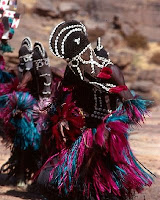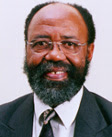The Guardian writes about the recent Kenyan elections:
This election promised so much, not only to Kenya but to Africa as a whole. It would have been the first time that a Kenyan president would have lost through the ballot box, and the first time an incumbent would have been voted out of office. It would have been, in the best sense of the word, a revolution. Many of the old guard who had dominated politics since independence were swept out of office by a younger generation of politicians who owed their popularity to votes rather than tribal loyality or patronage. Instead. Kenya appeared last night to be stepping back several decades. Deprived of power in the way that his late father - the Luo nationalist hero Oginga Odinga - was, Raila Odinga darkly predicted a stormy future for a nation that could once again split on tribal lines.













